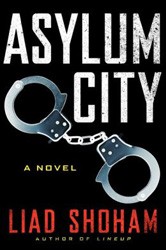By
– August 25, 2011
The passage of time leaves much unresolved for the people of Tel Ilan, a century-old pioneer village in Israel. The town appears to have been regenerated by new stores offering Far Eastern furnishings, stalls selling cheese and honey and olives, and boutique wineries that attract weekend visitors. Yet the synagogue looks abandoned, a monument to the founders of the village is forsaken, houses have fallen into disrepair, and at night the jackals howl and wild dogs bark.
A palpable sense of emptiness, regret, and loss correspondingly hovers over long-time residents in seven related stories about Tel Ilan. A doctor weeps over failed connections with her beloved nephew. A father is obsessed by the feeling that his own inflexibility led to the loss of his only son. Another man, abandoned long ago by his wife, is estranged from his son. The town’s politically adept but emotionally obtuse mayor can’t comprehend why his wife might leave him.
A beautifully realized story called “Singing” juxtaposes private despair with the optimism of old. Dozens of townspeople gather at a private home to sing together on a Friday night. As they revisit the past through zemirot for Shabbat, settings of Bialik and Rahel, Russian tunes, and songs of the pioneers and the Palmach, it is their present troubles that occupy their minds. There is an inescapable sense that they, like the world of those old songs, have changed irrevocably.
One of the most vivid characters in these stories, an aged former Knesset member named Pesach Kedem (his last name can mean “the past”), is a Communist and a prophet. He bitterly recalls doctrinal betrayals by fellow Party members 60 years before, speaking in Biblical language of “the principles they sold for a mess of pottage on every high hill and under every green tree.” He mourns “the destruction of our hearts,” and laments that now “everyone is a stranger to everyone else. Even the stars in the sky are alien to one another.”
In this heartbreakingly perceptive work Amos Oz shows how such sorrow, born equally of the actions of others and one’s own mistakes, is inescapably part of the human condition. As in all great fiction, he finds larger truths in the particulars of lived experience and conveys them with deep sympathy. (Nicholas de Lange also has an extraordinary instinct for le mot juste in his superb translation.) Oz has excelled himself in this unflinching, stunning, indelible work.
A palpable sense of emptiness, regret, and loss correspondingly hovers over long-time residents in seven related stories about Tel Ilan. A doctor weeps over failed connections with her beloved nephew. A father is obsessed by the feeling that his own inflexibility led to the loss of his only son. Another man, abandoned long ago by his wife, is estranged from his son. The town’s politically adept but emotionally obtuse mayor can’t comprehend why his wife might leave him.
A beautifully realized story called “Singing” juxtaposes private despair with the optimism of old. Dozens of townspeople gather at a private home to sing together on a Friday night. As they revisit the past through zemirot for Shabbat, settings of Bialik and Rahel, Russian tunes, and songs of the pioneers and the Palmach, it is their present troubles that occupy their minds. There is an inescapable sense that they, like the world of those old songs, have changed irrevocably.
One of the most vivid characters in these stories, an aged former Knesset member named Pesach Kedem (his last name can mean “the past”), is a Communist and a prophet. He bitterly recalls doctrinal betrayals by fellow Party members 60 years before, speaking in Biblical language of “the principles they sold for a mess of pottage on every high hill and under every green tree.” He mourns “the destruction of our hearts,” and laments that now “everyone is a stranger to everyone else. Even the stars in the sky are alien to one another.”
In this heartbreakingly perceptive work Amos Oz shows how such sorrow, born equally of the actions of others and one’s own mistakes, is inescapably part of the human condition. As in all great fiction, he finds larger truths in the particulars of lived experience and conveys them with deep sympathy. (Nicholas de Lange also has an extraordinary instinct for le mot juste in his superb translation.) Oz has excelled himself in this unflinching, stunning, indelible work.
Bob Goldfarb is President Emeritus of Jewish Creativity International.





